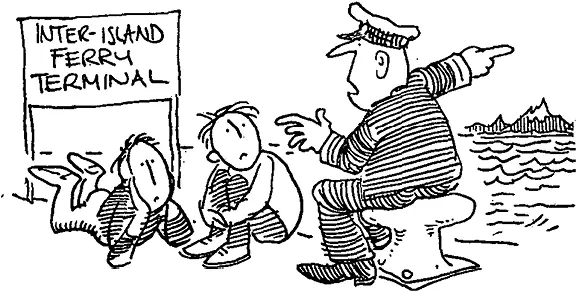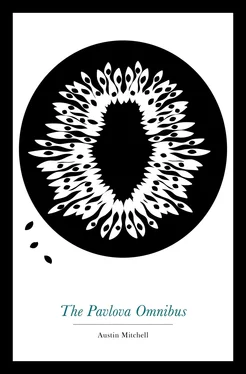Austin Mitchell - The Pavlova Omnibus
Здесь есть возможность читать онлайн «Austin Mitchell - The Pavlova Omnibus» — ознакомительный отрывок электронной книги совершенно бесплатно, а после прочтения отрывка купить полную версию. В некоторых случаях можно слушать аудио, скачать через торрент в формате fb2 и присутствует краткое содержание. Жанр: unrecognised, на английском языке. Описание произведения, (предисловие) а так же отзывы посетителей доступны на портале библиотеки ЛибКат.
- Название:The Pavlova Omnibus
- Автор:
- Жанр:
- Год:неизвестен
- ISBN:нет данных
- Рейтинг книги:5 / 5. Голосов: 1
-
Избранное:Добавить в избранное
- Отзывы:
-
Ваша оценка:
- 100
- 1
- 2
- 3
- 4
- 5
The Pavlova Omnibus: краткое содержание, описание и аннотация
Предлагаем к чтению аннотацию, описание, краткое содержание или предисловие (зависит от того, что написал сам автор книги «The Pavlova Omnibus»). Если вы не нашли необходимую информацию о книге — напишите в комментариях, мы постараемся отыскать её.
The Pavlova Omnibus — читать онлайн ознакомительный отрывок
Ниже представлен текст книги, разбитый по страницам. Система сохранения места последней прочитанной страницы, позволяет с удобством читать онлайн бесплатно книгу «The Pavlova Omnibus», без необходимости каждый раз заново искать на чём Вы остановились. Поставьте закладку, и сможете в любой момент перейти на страницу, на которой закончили чтение.
Интервал:
Закладка:
This may horrify you. Visiting IMF teams have been so numbed by it that they have been unable to say anything for months but the name ‘Bill Sutch’ repeated interminably. In fact, of course, New Zealand can live comfortably only by standing orthodox economics on its head. To understand the economic system you have to abandon what you’ve been brought up to regard as sense. Agricultural exports provide enough for all to live on. Kiwis could spend their time blowing bubbles or reading back numbers of Playboy were it not for some deep-seated puritan instinct which conditions them to want to work. So jobs have to be provided. Industry exists not to make things but to make work . The most efficient industry is the one which uses its labour most inefficiently; wharfies make their greatest contribution when seagulling; smokos do more for the economy than shift working. All the jokes about wharfies, like the one who complained to his foreman that a tortoise had been following him round all day, or the aerial photo of Wellington wharves which was ruined because a wharfie moved—all these miss the point. Work is like muck, no good unless its well spread.
Being practical men, New Zealanders are concerned not with hypothetical questions such as would Adam Smith, or even Robert McNamara, approve of our economy, but does it work? It does. The people have jobs, a good standard of living, a car and a lovely home each. Who could ask for more. They are not even concerned with the problem of whether the system could work better. Good enough is better than hypothetical perfection. Anyway the system works so well and has made the inhabitants so contented that they are the world’s most stable, and probably most conservative society.
Seriously, New Zealand is the best place in the world to live. It is called God’s Own Country. Modern theologians may argue whether God is dead. The rest of the world must pose him a lot of problems. Yet if the strain does get too much then he’ll not die. He’ll retire here.
*. See Fishopanhauser and Smith, ‘Conflict Theory and Beer Prices in a Southland Town’. A Ph.D. thesis assessing the relevance of Action Theory to empirical political analysis, including an attempt to establish a basis for determining the relationship between individual behaviour and system attributes. Based on in-depth interviews with 250 drunks.
**. See H. Sheisenhauser and Les Cumberland, ‘Status Attribution, Self Assigned Social Grouping, Inverse Social Mobility with Cognitive Dissidence and the Incidence of Plaster Ducks on Walls’. An exploratory survey based on 2.8 million random interviews with a stratified sample of New Zealanders. Condensed five-volume summary of results shortly available.
THIRD LETTER Third Letter: Stupendous, Fantastic, Beautiful New Zealand Fourth Letter: Education: The Making of the Resident Fifth Letter: The Kiwi Science of Politics Sixth Letter: Sex or the New Zealand Woman’s Weekly Seventh Letter: Seven Days Shalt Thou Labour: The Games Kiwis Play Eighth Letter: The Kiwi Sniggers: A Brief Guide to New Zealand Humour Ninth Letter: The Medium is the Tedium Tenth Letter: The Kulture of the Kiwi Bird Eleventh Letter: Overseasia Twelfth Letter: Processed Pom
STUPENDOUS, FANTASTIC, BEAUTIFUL NEW ZEALAND Third Letter: Stupendous, Fantastic, Beautiful New Zealand Fourth Letter: Education: The Making of the Resident Fifth Letter: The Kiwi Science of Politics Sixth Letter: Sex or the New Zealand Woman’s Weekly Seventh Letter: Seven Days Shalt Thou Labour: The Games Kiwis Play Eighth Letter: The Kiwi Sniggers: A Brief Guide to New Zealand Humour Ninth Letter: The Medium is the Tedium Tenth Letter: The Kulture of the Kiwi Bird Eleventh Letter: Overseasia Twelfth Letter: Processed Pom
(In Black and White)
DON’T THINK of New Zealand as a nation. It is an accidental collection of places whose inhabitants happen to live in much the same fashion and talk the same language; not so much a nation as more a way of life. How tenuous the connections are I realised on decimalisation day. A woman in a Christchurch shop announced that she wasn’t going to bother with this decimalisation rubbish. They were moving to Invercargill next week. Dunedinites think of Auckland as another country. Aucklanders advise South-bound trippers to take enough overcoats and hot-water bottles for the South Pole. Interisland ferry sailings generate as much emotion as a world cruise. It’s as though an umbilical was being severed. At both ends.
New Zealand is a collection of communities, not the metropolitan country you know. In France, Paris sets the tone and controls a centralised machinery of administration. In Japan, Tokyo dominates business and houses a substantial part of the population. In Britain, London dominates; television and newspapers originate there, the social whirl centres there and career ladders end there. New Zealand is different. There is not one main centre but four, and even together they contain only about a third of the population. They are also far apart and very jealous of each other. Even if they could develop collective pretensions they are all jealously watched by a league of little sisters. Oamaru and Invercargill won’t stand for much from Dunedin except bad television programmes; Palmerston North keeps a close eye on Wellington. In any case the eighteen biggest urban areas contain just over half the population. All the other places have claims of their own, too.
In Britain everywhere outside London carries the stigma of being provincial. New Zealanders work on the assumption that all places are equal, though the growth of Auckland may have opened up the possibility that some are more equal than others. Life has a local focus. Different places view different television programmes, look at different newspapers and listen to different radio programmes. To be a Timaruvian means as much as to be a New Zealander. The only reason that travellers identify themselves overseas as New Zealanders is because no one seems to have heard of Waipukurau or Totaranui. Of course they draw together as a nation for the occasional catharsis—an All Black victory, a royal tour. Then they fall back into competing localities. This competition is all the more vigorous because it is one of the few notes of diversity in a uniform community.

Farmers live in the same kind of boxes as the rest; the boxes just happen to be in the middle of fields. Social habits are the same everywhere, though some have a longer drive to the pub. Nearly everybody looks out on the same jungle of tottering telegraph poles and tangled wires; there could be sewerage pipes to look at, too, if governments had been able to devise a safe method of stringing them among all the other dangling paraphernalia. New Zealanders are all campers on a lovely landscape and the main element of difference in their lives is the accident of which camp site they happen to have picked. Wherever it is, you must remember one basic rule: the place where you are now is the best in New Zealand, its people the friendliest, its streets the cleanest, its flower beds the prettiest. Everyone else is out to do it down. You must defend it to the last mixed metaphor against all criticism, however justified.
This state of affairs exists because every place is competing against every other. Parliament may go through routine motions of party debate but it only comes alive when it gets down to the real issues—the quality of the pies in the railway refreshment room at Clinton … whether Gisborne has got its fair share of Golden Kiwi grants as well as its more than fair share of everything else … would a chain and a twelve-pound ball encourage the doctor to stay in Hokianga … should the Christchurch City Council be allowed to plant concrete in Hagley Park. MPs aren’t a national élite, they are local delegates, there to voice local demands.
Читать дальшеИнтервал:
Закладка:
Похожие книги на «The Pavlova Omnibus»
Представляем Вашему вниманию похожие книги на «The Pavlova Omnibus» списком для выбора. Мы отобрали схожую по названию и смыслу литературу в надежде предоставить читателям больше вариантов отыскать новые, интересные, ещё непрочитанные произведения.
Обсуждение, отзывы о книге «The Pavlova Omnibus» и просто собственные мнения читателей. Оставьте ваши комментарии, напишите, что Вы думаете о произведении, его смысле или главных героях. Укажите что конкретно понравилось, а что нет, и почему Вы так считаете.












